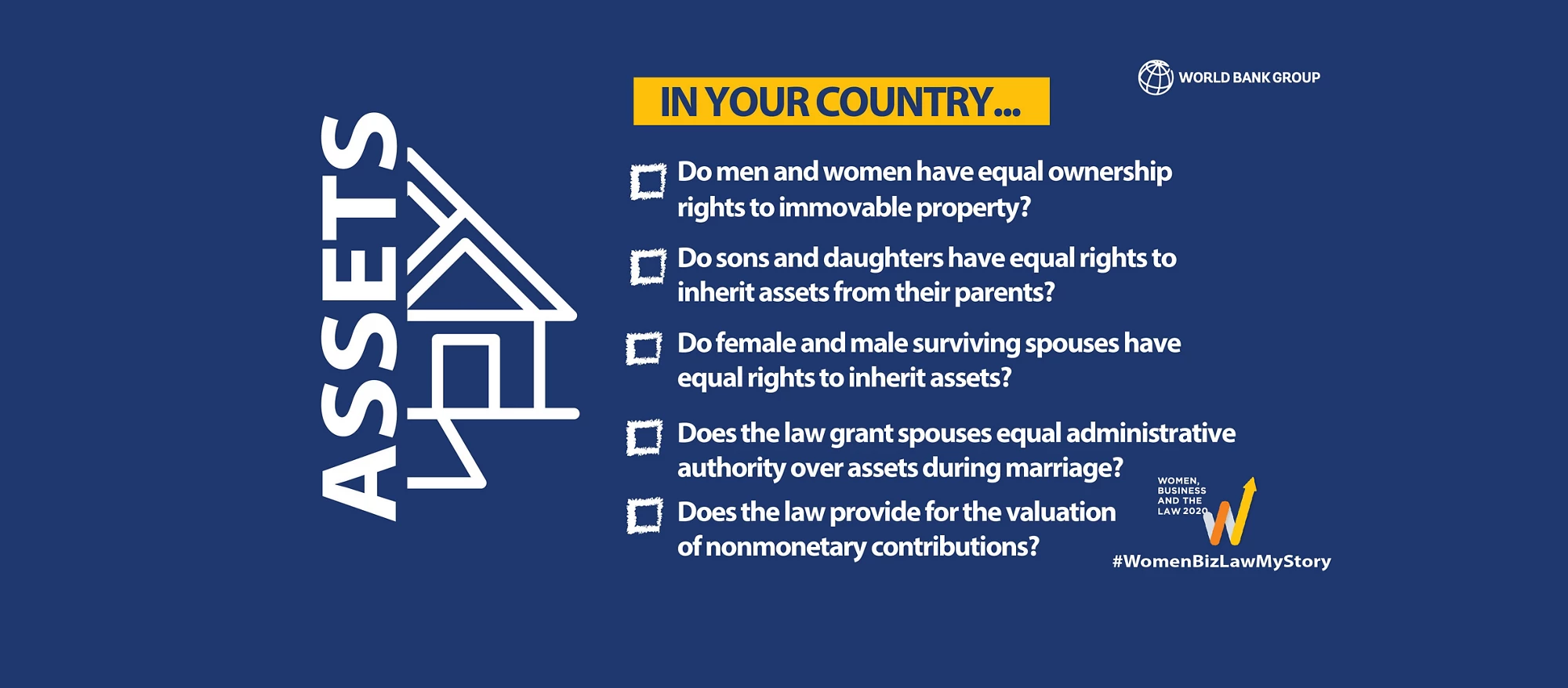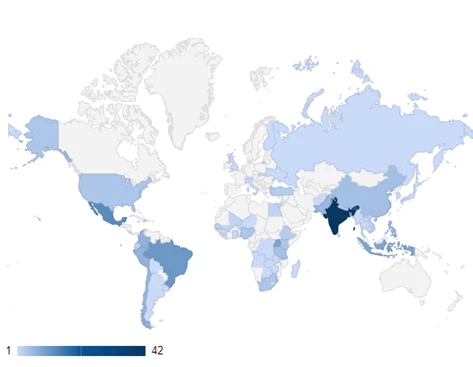 Assets indicator
Assets indicator
“Land belongs to the man, the produce in it to the woman.” All over the world, women farm land to both feed their families and make a living – yet they have no say in how it is managed. This common African saying perfectly embodies women’s struggle to own and inherit property throughout history.
It rings especially true for Helene Tiro, a woman living in the small village of Guinkin, Côte d'Ivoire. For more than 20 years, Helene lived on and cultivated the land that provided for her, her husband, and their seven children. But when her husband was killed after election violence in 2011, everything changed. In accordance with custom, their property was given to his extended family, leaving her with no place to go and no food for her children. She had no legal recourse either, as women in Côte d'Ivoire did not have equal rights to immovable property or equal administrative authority over assets during marriage.
Fortunately, by 2019 this was no longer the case. A recent reform to the Marriage Law overhauled these discriminatory provisions, granting spouses equal rights to manage and dispose of marital property. In other countries, however, inequality persists. According to the World Bank Group’s recently released Women, Business and the Law 2020, two-fifths of countries worldwide limit women’s property rights. In 19 countries, women do not have equal ownership rights to immovable property. In 44 countries, male and female surviving spouses do not have equal rights to inherit assets.
Datawrapper Link: https://datawrapper.dwcdn.net/drSDp/2/
Reforms related to property ownership and inheritance are the most difficult to pass, especially in countries where social norms dictate how land is acquired and passed to future generations. Women, Business and the Law examines the pace of reform toward gender equality in this area under its Assets indicator. Over the last two years, Côte d'Ivoire is the only country of 190 measured to reform in this area. And in the last decade, it is one of just five, the others being Ecuador, Mali, Timor-Leste, and Togo. If progress continues at this pace, we will not see equality in property rights for a very long time.
But the evidence shows that property rights are the key to economic development. When women have access to assets (especially those they are already the primary caretakers of), communities thrive. It increases their ability to start and grow businesses by giving them the collateral they need to secure credit. It allows them to invest in their families, changing outcomes for their children. Perhaps most importantly, it ensures that they can live with agency and dignity.
With the passage of reforms last year, Côte d'Ivoire received praise from around the globe. Equality in property rights acknowledges women as the important drivers of economic growth and development that they are. We hope it serves as an inspiration for other countries across the continent and beyond to implement similar changes. Because when women are given economic opportunity, the whole world stands to benefit.




Join the Conversation